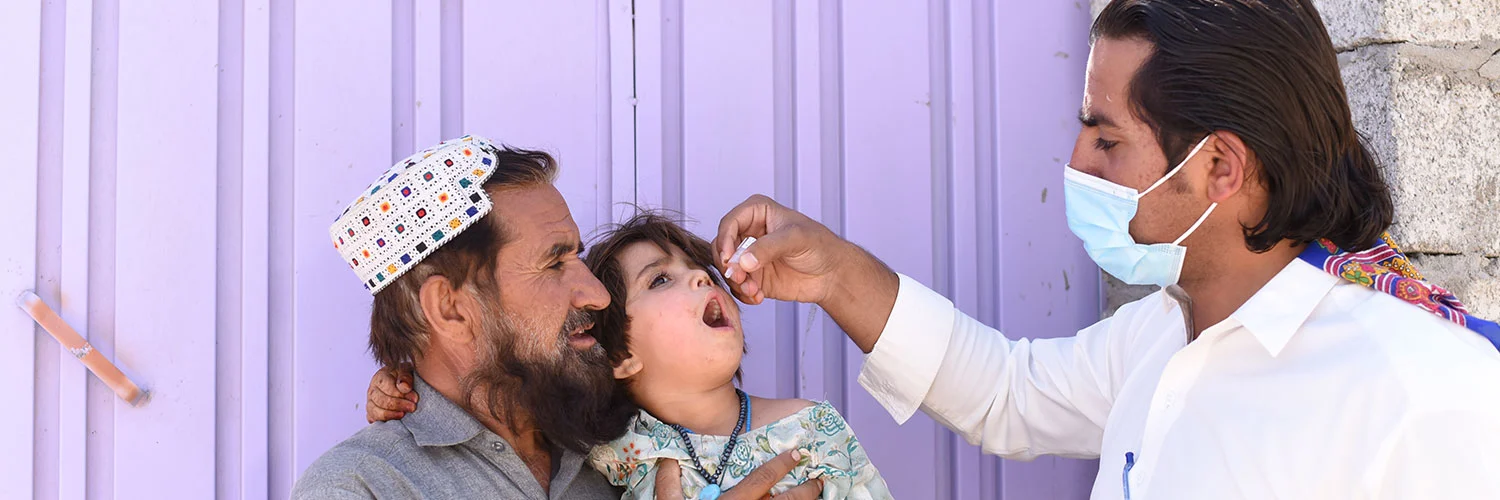Islamabad, August 17, 2023 – A sewage sample collected from Peshawar has tested positive for wild poliovirus type 1 (WPV1), taking the number of positive environmental samples this year in Pakistan to 15.
According to the Pakistan Polio Laboratory at the National Institute of Health, the sample was collected from Naray Khuwar site on August 1. The isolated virus is genetically linked to the virus cluster circulating in neighbouring Afghanistan.
Federal Health Secretary Iftikhar Ali Shallwani has said that the Pakistan Polio Eradication Programme is well-equipped to respond to the detection of poliovirus anywhere in the country.
“It is concerning that the virus is consistently showing up in environmental samples in Peshawar,” he said, adding: “Polio campaigns are being held regularly in the country and parents, particularly in the districts of virus detection, must realize the danger to their child and ensure vaccination at every opportunity.”
Secretary Shallwani further said that the Pakistan Polio Programme maintains one of the world’s most sensitive polio surveillance networks and these detections speak volumes about the efficiency of this network.
Coordinator for the National Emergency Operations Centre for Polio Eradication, Dr Shahzad Baig, said that targeted polio vaccination campaigns are being conducted in the country regularly along with vaccination at the Pak-Afghan border to ensure that the virus does not travel with people and get a foothold in under-immunised children.
This is seventh positive environmental sample detected in Peshawar so far this year and the fifth consecutive positive from this site. Peshawar was covered in the most recent subnational vaccination drive from August 7 to 13, during which children under five were given the oral polio vaccine and eligible children were also given the injectable vaccine to boost immunity.
Pakistan has reported two polio cases and 15 positive environmental samples so far this year, while Afghanistan has reported five cases and 33 positive environmental samples.
Note for the Editor:
Polio is a highly infectious disease caused by poliovirus mainly affecting children under the age of five years. It invades the nervous system and can cause paralysis or even death. While there is no cure for polio, vaccination is the most effective way to protect children from this disease. Each time a child under the age of five is vaccinated, their protection against the virus is increased. Repeated immunisations have protected millions of children from polio, allowing almost all countries in the world to become polio-free, besides the two endemic countries of Pakistan and Afghanistan.
For further information, please contact:
Mr. Zulfiqar Babakhel, Media Manager, NEOC,
0345-9165937
Email: This email address is being protected from spambots. You need JavaScript enabled to view it.

